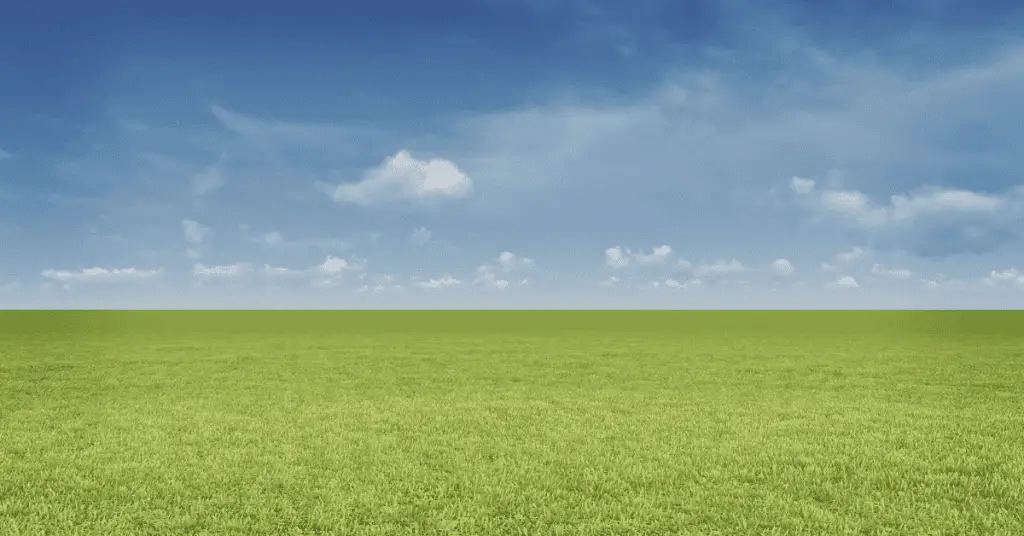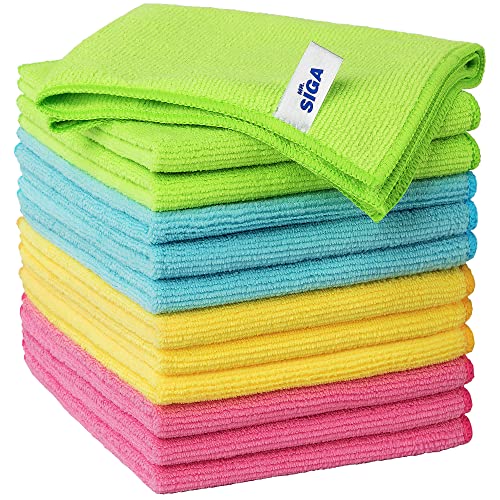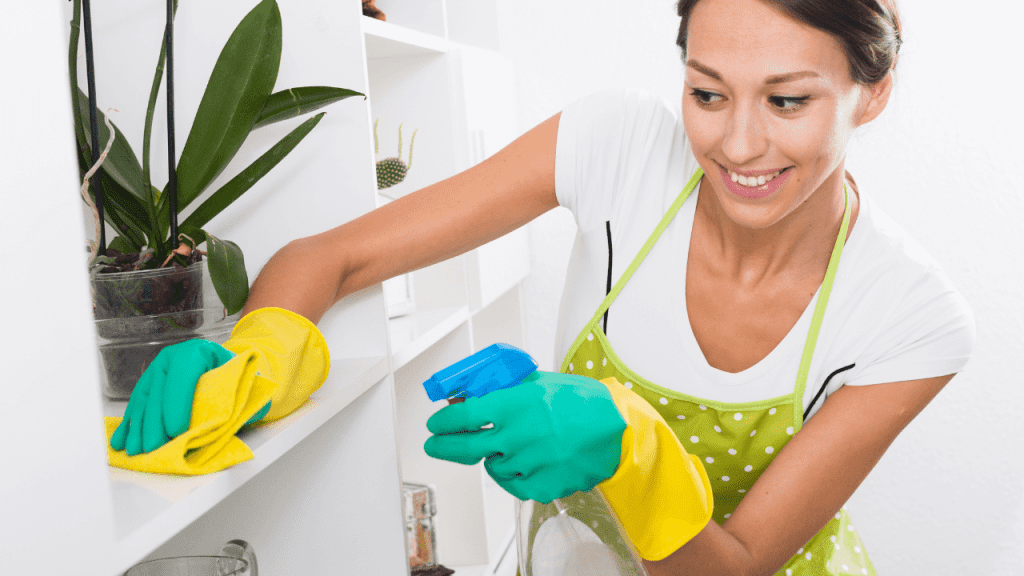Keeping a playground clean is crucial for ensuring the health and safety of everyone who uses it. Playgrounds are a place where children can have fun and develop their physical skills, but they can also be a breeding ground for germs and bacteria. In this article, we will discuss the hazards of a dirty playground, the benefits of cleaning your playground, how to clean and maintain playground equipment, and the benefits of keeping an outdoor playground clean.
Must-Have Cleaning Essentials For Every Home (Recommended):

- Consistently delivers the same smell, color, and results - every time. For superior and safer cleaning performance, in and around your home.

- Great household product for anything that needs a bright new look! Use it as a cleansing booster with your laundry or dish detergent, as a pH buffer in swimming pools, or for cleaning kitchen surfaces.
What are the hazards of a dirty playground?
Germs and Bacteria
Playgrounds are known for being a place where germs and bacteria can easily spread. Children can easily transmit germs and pathogens by touching the same surfaces, such as swings and slides, or by sharing toys and equipment. These germs can cause illnesses such as the common cold or flu, but can also lead to more severe infections such as hand-foot-mouth disease.
Surface Damage
A playground that is not regularly cleaned can also suffer from damage to its surfaces. The dirt, leaves, and other debris can accumulate on surfaces such as slides and swings and cause them to degrade over time. This can lead to rust, erosion, and other forms of surface damage that can make the equipment unsafe for children to use.
Hazards to Children’s Health and Safety
Other hazards of a dirty playground include potential safety concerns. If equipment is not properly cleaned and maintained, it can become unstable or break, which can cause injury to children. Additionally, if the equipment is not cleaned, it can create an uninviting play space that may discourage children from using it, reducing opportunities for physical activity and play.
What are the benefits of cleaning your playground?
Prolonging the Life of Playground Equipment
Regular cleaning and maintenance of playground equipment can help prolong its lifespan. When equipment is clean and free of debris, rust, and erosion, it is less likely to suffer from wear and tear, which means it will last longer and require less frequent replacement.
Preventing Damage to Playground Equipment
Regular cleaning and maintenance can also work to prevent damage to playground equipment. If equipment is not properly cleaned, dirt and debris can accumulate in tight spaces, which can cause rust and other types of damage that can be difficult to repair.
Sanitizing Playground Equipment
Sanitizing playground equipment is an important step in keeping a playground clean and safe. Sanitizing can eliminate harmful pathogens and germs that can cause illness and infection. By regularly sanitizing playground equipment, you can reduce the risk of illness, making your playground a safer and healthier place to play.
How do you clean playground equipment?
Inspect the Playground Regularly
Regular inspections of your playground equipment are key to identifying potential hazards or areas in need of cleaning. Inspections should be conducted on a regular basis and should include a thorough examination of all equipment, surfaces, and surrounding areas. Any issues should be addressed immediately to keep the playground safe and clean.
Spot Cleaning
Spot cleaning can be used to address specific areas of a playground that appear dirty or in need of cleaning. Spot cleaning should be done using gentle cleaning agents that are safe for use on playground equipment and surfaces. For example, surfaces can be wiped down with a damp cloth to remove dirt and debris.
Sanitize and Disinfect Playground Equipment
Sanitizing and disinfecting playground equipment is an important step in keeping it clean and safe. Sanitizing can help eliminate germs and bacteria from equipment while disinfecting can help prevent the spread of pathogens. Be sure to use disinfectants that are safe for use on playground equipment, and follow instructions carefully to ensure proper use.
How do you maintain your playground for long-term cleanliness?

Plastic Recycling for Playground Equipment
Recycling plastic is an excellent way to keep your playground clean and safe. Plastic can be used to make durable, long-lasting playground equipment that is less likely to deteriorate over time. Additionally, recycling plastic can help keep the environment clean and healthy.
Regular Inspection and Maintenance
Regular inspection and maintenance of playground equipment are key to keeping it clean and safe in the long term. Inspections should be conducted on a regular basis and should include a thorough examination of all equipment, surfaces, and surrounding areas. Any issues should be addressed immediately to keep the playground safe and clean.
Encouraging Proper Playground Etiquette
Encouraging proper playground etiquette is crucial for maintaining a clean and safe play space. Children should be encouraged to follow rules, such as not eating or drinking on the playground, keeping the equipment clean, and disposing of trash properly. When everyone is working together, the playground is more likely to be clean and safe for everyone to enjoy.
What are the benefits of keeping an outdoor playground clean?
Preventing the Spread of Germs
Keeping an outdoor playground clean is essential for preventing the spread of germs and bacteria. This can reduce illness and infection rates, making it a healthier environment for children to play in.
Reducing Health Risks
By keeping playground equipment clean and well-maintained, you can reduce the risk of injury and illness to children. This can lead to a safer and healthier play space, which is essential for promoting physical activity and play.
Promoting Positive Play Experiences
A clean, safe, and well-maintained playground is a positive play experience for children. By creating a welcoming and enjoyable environment, children are more likely to engage in physical activity and play, which can have positive effects on their overall health and well-being.
FAQ
Q: Why is playground cleaning important?
A: Playground cleaning is important for several reasons. Firstly, frequent cleaning and sanitization can help prevent the spread of harmful microorganisms like bacteria and viruses. Secondly, regular cleaning can prevent damage to playground surfaces and equipment, prolonging their lifespan and saving you money in the long run. Lastly, a clean and well-maintained playground is safer for children to play on and more visually appealing to parents.
Q: What does playground maintenance involve?
A: Playground maintenance involves regular inspection, cleaning, and upkeep of all play equipment and the surrounding play area. This usually includes checking for hazards, removing trash and debris, spot-cleaning any mess, disinfecting and scrubbing surfaces, and checking for any sharp edges or damage to play equipment. A maintenance plan can help ensure that all of these tasks are completed regularly and by a qualified maintenance crew.
Q: How often should playground equipment be cleaned?
A: Playground equipment should be cleaned regularly, ideally on a daily basis if possible. High-touch surfaces like handles, slides, and swings should be disinfected after each use, while other surfaces can be spot cleaned as needed. Equipment should also be thoroughly cleaned at least once a week, depending on weather conditions and how frequently the playground is used.
Q: What products should be used to clean playground equipment?
A: A mild detergent solution should be sufficient to clean most playground equipment. However, for more stubborn stains and to disinfect surfaces, a solution of bleach and water can be used (one cup of bleach to one gallon of water). Always follow manufacturer guidelines and test a small area before using any cleaning solution on play equipment.
Q: Can plastic playground equipment be recycled?
A: Plastic playground equipment can often be recycled, depending on the type of plastic it is made from. Check with your local recycling program to see if they accept plastic play equipment and if there are any special requirements for preparation.
Q: Should I hire a professional to clean my playground equipment?
A: While cleaning playground equipment can be done in-house, it’s often safer and more effective to hire a professional cleaning service. Professional cleaners have the knowledge and equipment needed to properly clean and sanitize play equipment, and they are trained to identify potential hazards and damage that may have been overlooked by untrained staff.
Q: What are the benefits of spot cleaning?
A: Spot cleaning is an effective way to keep your playground looking clean and well-maintained on a daily basis. It involves cleaning up any messes or debris as soon as they occur, rather than waiting for a full cleaning cycle. This helps prevent stains, buildup, and damage to surfaces and equipment, and it can also help reduce the spread of harmful microorganisms.
Q: Why should you prevent playground equipment damage?
A: Preventing playground equipment damage is crucial for several reasons. Firstly, damaged equipment can be dangerous for children to play on, particularly if there are sharp edges or other hazards present. Secondly, it can be expensive to repair or replace equipment that has been damaged due to neglect or vandalism. Lastly, a damaged playground can be unattractive to potential users, which can reduce foot traffic and lower revenue for the organization or business that owns it.
Q: What should I look for when inspecting my playground equipment?
A: When inspecting playground equipment, look for any signs of damage, wear and tear, rust, or corrosion. Check all bolts, screws, and connectors to make sure they are secure and not missing. Inspect play surfaces for any cracks, holes, or sharp edges. Additionally, look for any potential hazards such as protruding bolts or exposed moving parts.
Q: Are there any tips to help keep my playground clean?
A: Yes! Here are a few tips to keep in mind: – Encourage visitors to help keep the playground clean by disposing of trash properly – Assign a staff member to spot clean any messes as soon as they occur – Include cleaning and maintenance tasks in your regular work schedule – Use only approved cleaning products and follow manufacturer guidelines – Make sure all staff members are trained in proper equipment cleaning and safety procedures – Regularly inspect the playground for any hazards or damage that may need to be addressed.
Conclusion
In conclusion, keeping your playground clean is essential for the safety and well-being of children who play there. It prevents the spread of germs and illnesses, reduces the risk of injuries caused by hazards such as litter and broken equipment, and creates a positive environment for children to enjoy.
Maintaining cleanliness not only benefits the kids who use the playground but also the surrounding community by reducing pollution and preserving the natural beauty of the area. Additionally, a clean playground sends a message about the importance of respect for shared spaces and encourages children to take responsibility for their own actions.
Regular cleaning routines, litter and waste disposal, and regular maintenance of equipment are all important measures that can help maintain a clean and safe playground for all to enjoy. By keeping our playgrounds clean and safe, we can enhance the quality of life for our children and the entire community.




